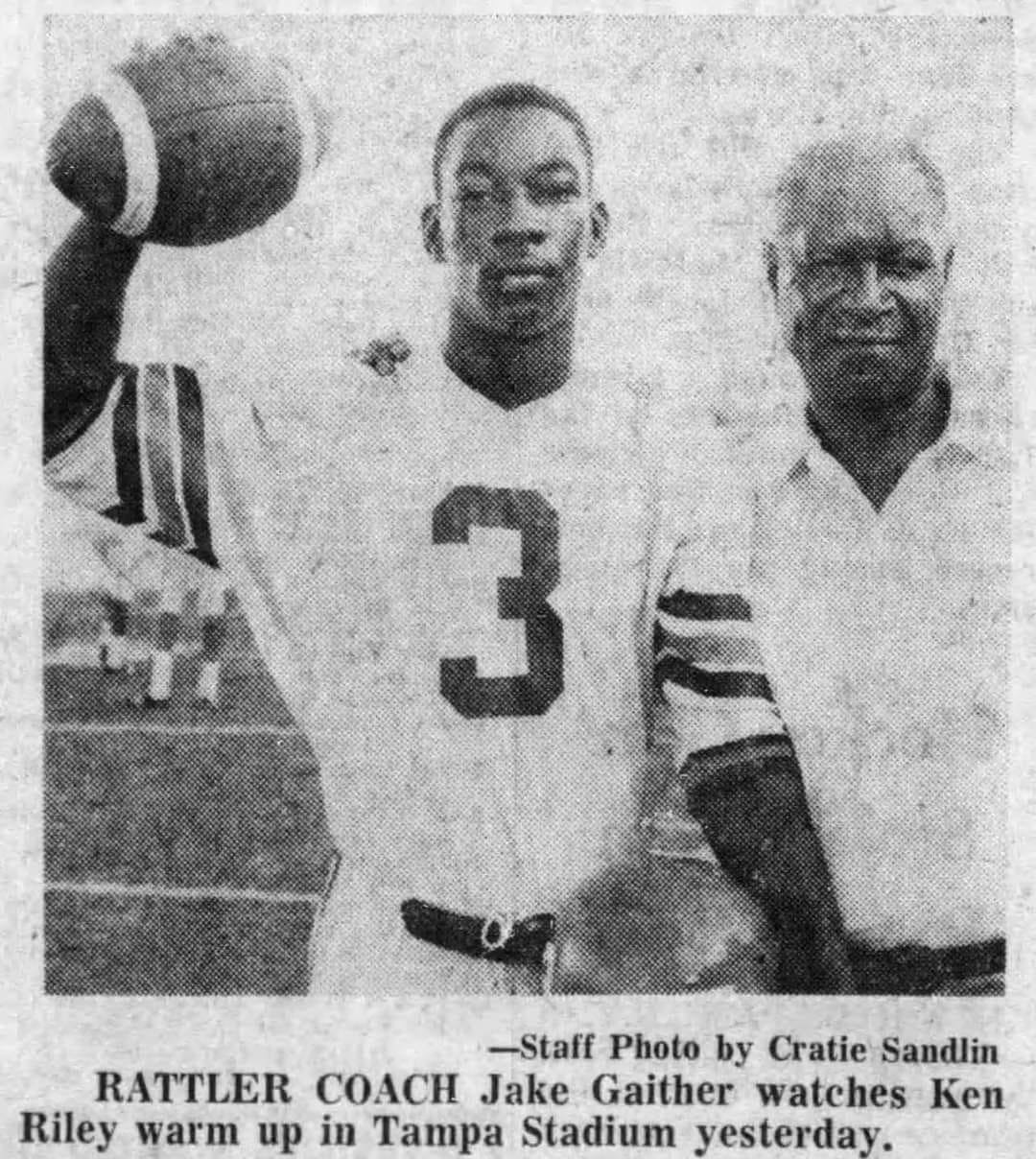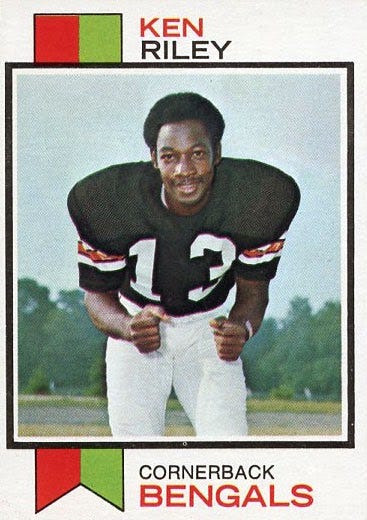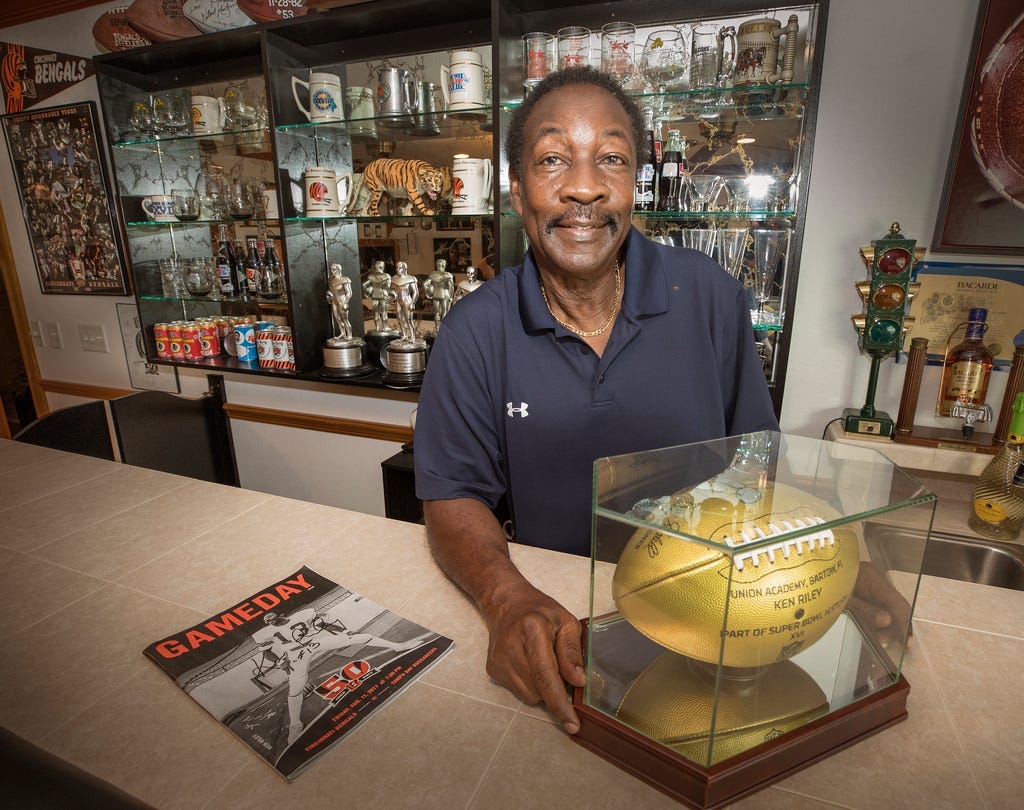Later today, millions of people worldwide will tune in to watch the Philadelphia Eagles face the Kansas City Chiefs in Super Bowl 57, the first to feature two Black men, Jalen Hurts and Patrick Mahomes, as the starting quarterbacks!
In the time since Grambling alumnus Doug Williams won MVP honors 35 years ago while becoming the first Black quarterback to lead his team to a Super Bowl (42-10 victory over the Denver Broncos), seven other Black men, including Alcorn State legend Steve McNair, have played in a Super Bowl.
The sad reality is that in a professional sport that hovers around 50 to 70 percent Black since the Civil Rights Movement ended circa 1968, Black players have dominated at just about every position in the NFL save one—quarterback.
This past week, Kenneth J. Riley was elected to the NFL Hall of Fame, a long overdue honor that memorializes his brilliant play at cornerback for the Cincinnati Bengals from 1969 until 1983. But those who remember Riley from his football and academic All-American days at Florida A&M University recall that he was a scintillating quarterback, equally fast and quick, and that he possessed a rocket arm that was precise for three seasons under the tutelage of Coach Jake Gaither.
But when Riley was signed by the Bengals, he was moved to cornerback and forced to play defense for the first time in his life—all due to the reality that NFL teams were not ready or willing to hand the keys to their offenses over to a Black man—even if he was a Rhodes Scholar nominee, as Riley was during his days at FAMU.
The same held true for Eldridge Dickey, a gifted thrower-runner for Tennessee State University who led the Big Blue Tigers to victory after victory in the mid-1960's. Never heard of Dickey? Don't beat yourself up because his is a story rarely told—one in which he broke the glass ceiling by becoming the first Black quarterback to be selected in the first round of the NFL/AFL draft in 1968 by Al Davis and the Oakland Raiders.
The Oakland Raiders begged quarterback Eldridge Dickey, their 1968 first round draft pick out of Tennessee State University, to become a running back or receiver. The team selected Ken Stabler out of Alabama in the second round that year and despite reports that Dickey outplayed Stabler in training camp, he never played a down at quarterback in the NFL…
While Dickey, like Riley, was a mobile thrower as shown in this rare video footage of TSU playing Ball State in 1965, his talent was not enough to break through the racial biases.
The irony is that during this same era, mobile white quarterbacks like Fran Tarkenton, Roger Staubach, and Archie Manning were lauded for their abilities to run and pass, but Black quarterbacks like Riley and Dickey, and later ones like Grambling alumnus James Harris, Tennessee State alumnus Joe Gilliam, Nebraska alumnus Marlin Briscoe and Tennessee alumnus Condredge Holloway, served as career backups or, in the case of Holloway, took their talents north to a Canadian Football League that regularly featured mobile Black quarterbacks.
During my childhood in the 1970's and 80's, while I was a Washington football fan, I loved to watch the Tampa Bay Buccaneers because my father made sure that we watched and supported the League's only Black starting quarterback. Similarly, years later, I watched and supported Black quarterbacks that followed Williams to varying levels of NFL stardom, men like Warren Moon, Randall Cunningham, Vince Evans, Rodney Peete, and Andre Ware. I did so because I understood that for every Black quarterback who became a starter in the NFL, that there were countless others, like Deion Sanders, David Palmer, Hines Ward, and Peter Warrick, who switched to other skill positions when they got to college or, like University of Colorado and Pittsburgh Steelers star Kordell Stewart, ones who took on "slash" roles where they alternated between quarterback/running back/receiver in the professional ranks.
The Philadelphia Eagles hold the distinction of having started the most Black quarterbacks in NFL history…
As we exist in an era where internet skeptics ask "why does the race of Jalen Hurts or Patrick Mahomes matter," my simple reply is that it is a shame that it has taken nearly 56 years of "Super Bowls" before two Black signal callers were slated to face off for the championship. It matters because the dearth of Black quarterbacks has had absolutely nothing to do with talent, intellect, or ability to lead, but was due to the racial biases of NFL team owners and managers who simply wanted the face of their franchises to look white like their own—even if it meant relegating the best players to the bench or unemployment lines after final roster cuts.
When asked about tonight's momentous occasion, Jalen Hurts said, “It is history. It’s come a long way. I think there has only been (eight) African American quarterbacks to play in a Super Bowl. To be the first for something is pretty cool. I know it’ll be a good one." Patrick Mahomes, answering the same question, added, "I've learned more and more about the history of the Black quarterback since I've been in this league...to have two Black quarterbacks starting in the Super Bowl, I think it's special..."
Indeed—best wishes and God speed, young Brothers!












I MIGHT become an Eagles fan now✊🏽👏🏽
If white folks didn’t create the concept of race and make everything about race, we would be focused on watching 2 highly skilled fun to watch quarterbacks tonight who just so happen to be black…
Great perspective and historical FACTS to call out the travesty that is the NFL and it's racist past and present. I have not watched a single second of any NFL game in support of brother Kaepernick and because I do not want my so to aspire to anything remotely related to the other religion in GA where he is born and being raised. Thus far I have been successful because he will kick and soccer ball and race kids on the playground before he will pickup a football at recess. However, I will bend my position today to allow my him (an avid fan of athletics and gifted hard working athlete/scholar - as a state ranked mid-distance track star, regional champion soccer starting right wing, straight A student, speaks 3 languages, a musician and martial artist) to see two men at the top of their game in a historical moment during the first half while we visit a friend who is a football fan we have not see in some time. As I often tell my son, organizations don't define or limit our friendships. We can love and fellowship with others who enjoy things we don't while still fighting for and supporting the things we believe in.